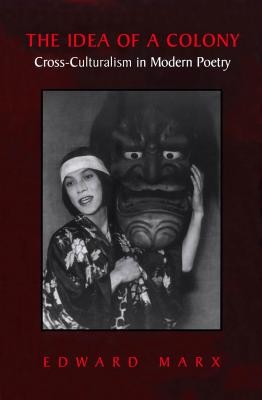
- We will send in 10–14 business days.
- Author: Edward Marx
- Publisher: University of Toronto Press
- ISBN-10: 1487524943
- ISBN-13: 9781487524944
- Format: 15 x 22.9 x 1.5 cm, softcover
- Language: English
- SAVE -10% with code: EXTRA
Reviews
Description
In The Idea of a Colony, Edward Marx provides a comprehensive approach to the question of cross-culturalism in modern poetry. He situates the work of canonical British and American modernist poets - Eliot, Pound, Stevens, Brooke, Kipling, and Flecker - in dialogue with the work of non-Western, colonial, and minority poets - Tagore, Naidu, Violet Nicolson - and brings into the discussion the poets of the Harlem Renaissance.
Drawing on psychological and cultural theory, Marx argues that primitivism and exoticism were the main forms of cross-culturalism in the modern period, and that these forms were organized around repression of the unconscious and irrational. To the psychological scene of the primitive/exotic poem and its reception, which is explored through substantial archival research, Marx brings an array of approaches including the theories of Freud, Jung, Lacan, Said, Foucault, Bhabha, Fanon, and others. The result is a series of powerful new readings of canonical modernists and a welcome expansion of the field of modern poetry into the age of multiculturalism and postcoloniality.
EXTRA 10 % discount with code: EXTRA
The promotion ends in 17d.11:56:00
The discount code is valid when purchasing from 10 €. Discounts do not stack.
- Author: Edward Marx
- Publisher: University of Toronto Press
- ISBN-10: 1487524943
- ISBN-13: 9781487524944
- Format: 15 x 22.9 x 1.5 cm, softcover
- Language: English English
In The Idea of a Colony, Edward Marx provides a comprehensive approach to the question of cross-culturalism in modern poetry. He situates the work of canonical British and American modernist poets - Eliot, Pound, Stevens, Brooke, Kipling, and Flecker - in dialogue with the work of non-Western, colonial, and minority poets - Tagore, Naidu, Violet Nicolson - and brings into the discussion the poets of the Harlem Renaissance.
Drawing on psychological and cultural theory, Marx argues that primitivism and exoticism were the main forms of cross-culturalism in the modern period, and that these forms were organized around repression of the unconscious and irrational. To the psychological scene of the primitive/exotic poem and its reception, which is explored through substantial archival research, Marx brings an array of approaches including the theories of Freud, Jung, Lacan, Said, Foucault, Bhabha, Fanon, and others. The result is a series of powerful new readings of canonical modernists and a welcome expansion of the field of modern poetry into the age of multiculturalism and postcoloniality.


Reviews